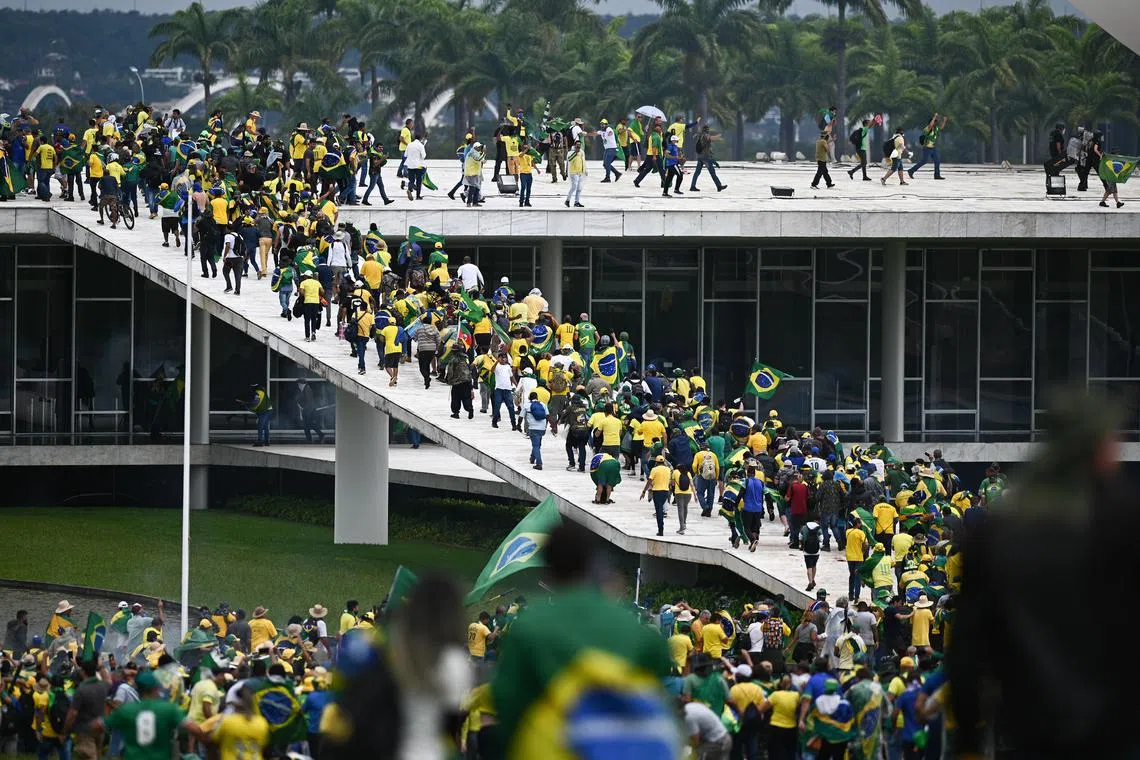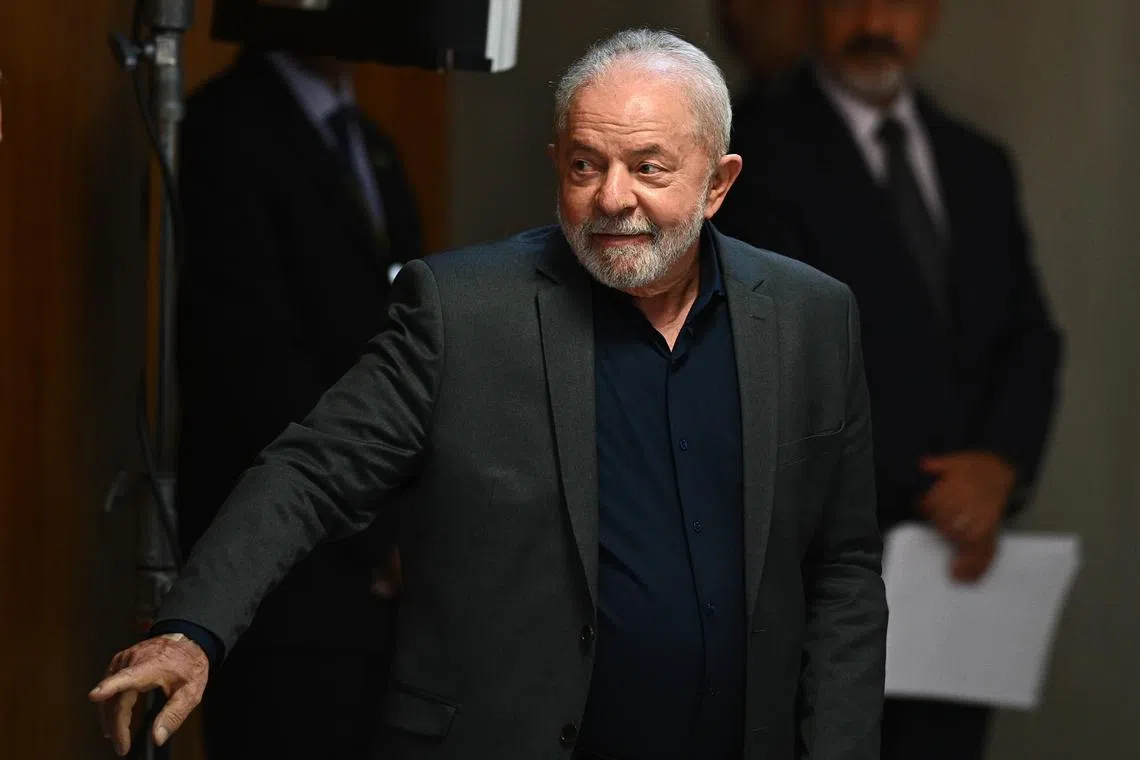Brazil riots may have strengthened Lula's hand: Analysts
Sign up now: Get ST's newsletters delivered to your inbox

Former president Jair Bolsonaro's supporters storm the National Congress in Brazil on Jan 8, 2023.
PHOTO: EPA-EFE
Follow topic:
RIO DE JANEIRO – By ransacking government buildings in their fervent opposition to leftist President Luiz Inacio Lula da Silva, Brazil’s Jan 8 rioters may have strengthened his hand instead, at least temporarily, analysts say.
Many even among the backers of defeated far-right former president Jair Bolsonaro were shocked by the pillaging of national heritage buildings and artefacts.
Immediately after the storming of the presidential palace, Congress and Supreme Court, Mr Lula gathered leaders of the three institutions – many of them from the political right – for a unanimous condemnation of the events.
Presenting a united front, they affirmed publicly that democracy would not be allowed to falter just three decades after the fall of Brazil’s military dictatorship.
“The events (of Jan 8) had the opposite effect” of what was intended, said political science professor Mayra Goulart of the Federal University of Rio de Janeiro.
“Lula will no doubt emerge stronger. These assaults have created a climate of national unity for the defence of democracy,” she said.
The riots happened exactly one week after Mr Lula’s inauguration
Thousands forced their way into the seats of power,
The military did not rise to the call.
More than 2,000 alleged rioters were detained, and the authorities are tracking those suspected of having masterminded and financed the revolt that shocked Brazil and the world.
An investigation has been opened into a possible role played by Mr Bolsonaro, whose justice minister was arrested on Saturday for possible collusion with the vandals.
Condemnation from abroad was unanimous.
Washington, Moscow, Beijing, the European Union, Paris and Latin American capitals expressed their full support for the new president of Brazil – a country that was isolated from the global stage under Mr Bolsonaro.
“The international uproar will reinforce the position of Lula, who will be perceived as an important leader who can contribute to strengthening multilateral forums,” said Prof Goulart.
Balanced attitude
Mr Leandro Gabiati of consulting firm Dominium said Mr Lula’s image has been “strengthened” by his perceived firm but fair handling of the mop-up operation.
Mr Bolsonaro’s, in turn, has been harmed.
Mr Lula “was challenged and he did quite well”, said Mr Gabiati, citing “a balanced attitude that somehow restored normality” without an air of retribution.
Mr Lula’s government has been firm: It said that “fascists” found guilty of involvement in the riots will face sentences of up to 30 years for “terrorism”.

Brazil’s President Luiz Inacio Lula da Silva will face a difficult task in trying to heal a country marked by deep divisions.
PHOTO: EPA-EFE
As the net also tightened around suspected organisers of the uprising, the government announced a reshuffling of the police and security forces.
Security at the presidential palace, it announced, will be cleansed of any remaining Bolsonaro sympathisers left over from the previous administration.
Mr Lula will have to “take exemplary sanctions in order to avoid a repeat of this type of demonstrations”, said Mr Gabiati.
And even as he needs to deal urgently with pressing problems such as poverty and hunger, Mr Lula will be forced to “expend energy in the investigations... of the putschists”, said Prof Goulart.
Meanwhile, government work continued this week, with ceremonies held in official buildings still littered with shattered glass and broken furniture to swear in Mr Lula’s new ministers.
A huge shock
Mr Lula will face a difficult task in trying to heal a country marked by deep divisions worsened by a vitriolic election campaign filled with disinformation and fear-mongering.
A leftist icon for many, he won the vote by a razor-thin margin – he had 60 million votes; Mr Bolsonaro had 58 million.
Mr Lula’s most radical opponents, fuelled by anti-“communist” rhetoric and mistrust of the election outcome, are unlikely to give up.
“I think what happened on Jan 8 was a huge shock. And I think many of the people who voted for Bolsonaro did not expect or welcome what happened,” said Mr Michael Shifter, a senior fellow at the Inter-American Dialogue think-tank.
Even among those who supported the riots, many were left disappointed by the failure of the military to intervene on their behalf, the analyst said.
“I think what we’re seeing is (the anti-Lula movement) a little bit fractured for the moment and I think the country has understandably, predictably rallied around Lula for the moment,” said Mr Shifter.
“But I think that at the same time this movement is still around and... we probably could expect some sort of more low-intensity kind of upheavals and protests and some violence.
“I don’t think that is going to disappear.” AFP

